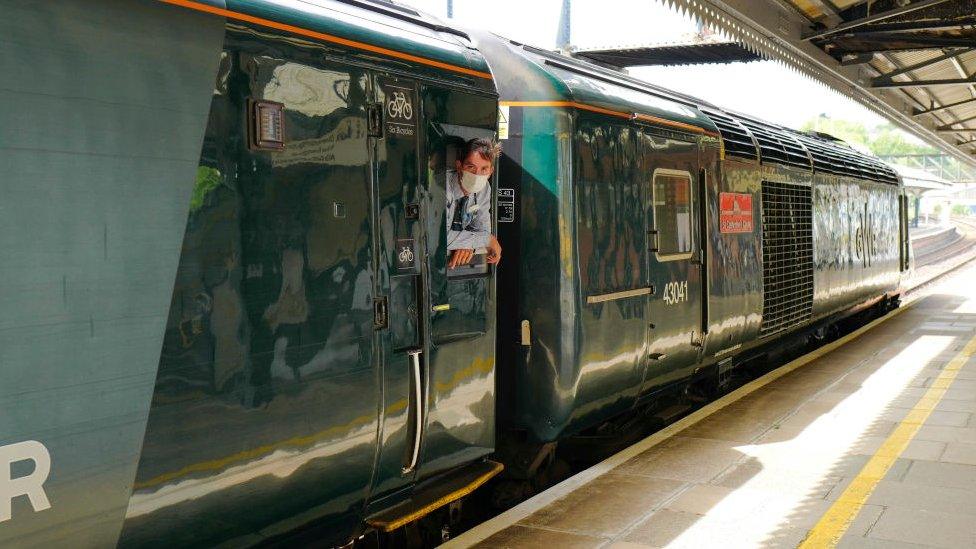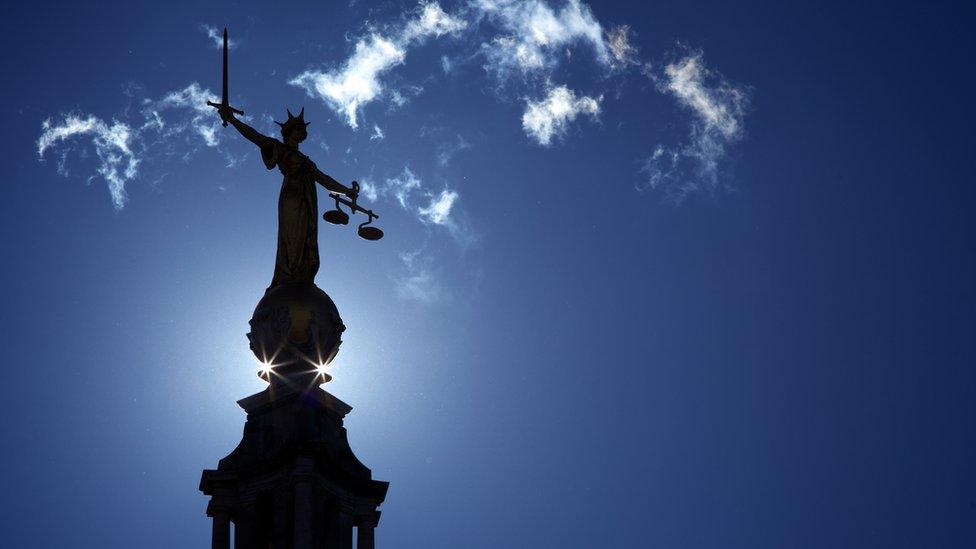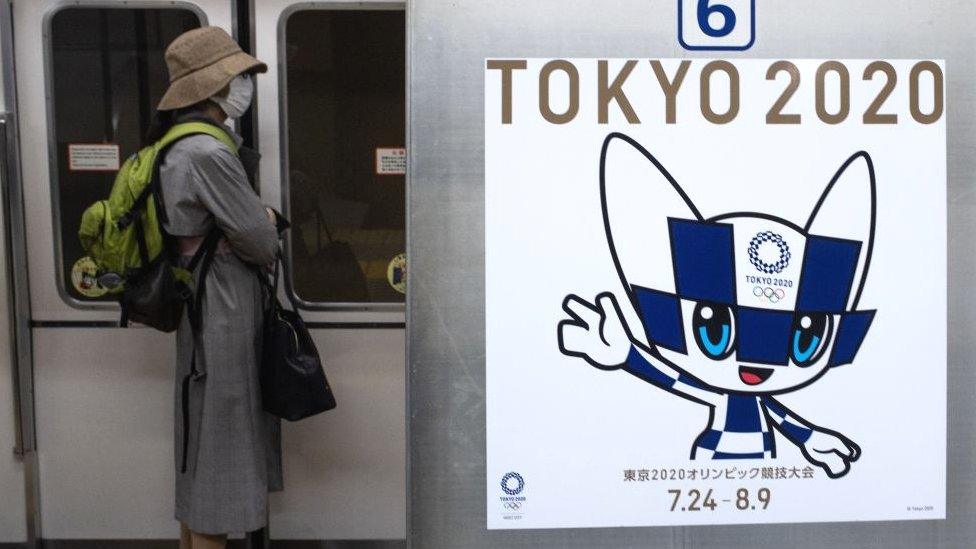Coronavirus: Rail services boost, cases spike and court case backlog
- Published
Here are five things you need to know about the coronavirus outbreak this Monday morning. We'll have another update for you at 18:00 BST.
1. Rail capacity ramped up
Train operators in England and Wales will lay on more services from today, getting back to about 90% of pre-pandemic levels. The government hopes it'll help with its drive to encourage people to return to offices and other workplaces. BBC transport correspondent Tom Burridge says rail bosses have a delicate balance to strike because they want more passengers back, but don't want a flood of commuters.

Passengers are advised to check before they travel and plan their journeys for quieter times

2. Sharp rise in case numbers
The latest coronavirus figures - for Sunday - show the UK recorded the highest number of new cases on a single day since 22 May. The spike so far appears to be predominantly among young people - and in part due to greater testing - but the fear is that the incease subsequently spreads to the older and more vulnerable. See the situation in your area and find out how to get a test if you think you need one.


3. Court plan criticised
More than 9,000 trials have been delayed since the UK went into lockdown and lawyers are warning this morning that hundreds of thousands of people may have to wait until 2022 for justice. That's despite government measures designed to manage the pressure on courts, including holding suspects for longer in England and Wales while awaiting trial. Critics say delays in criminal courts are entirely of the government's making and pre-date coronavirus.


4. Struggling for support
Hundreds of parents of children with special education needs have told BBC Panorama they struggled to access support during lockdown. While schools closed to the majority of children, the government said the most vulnerable could still attend, but families found that wasn't always the case. Watch Panorama: Fighting for an Education at 19:35 BST tonight, or later on the iPlayer.
Sofia is one of over one million young people with special educational needs and disabilities in the UK

5. Olympic optimism
The Tokyo Olympics will go ahead next year "with or without Covid", the vice-president of the International Olympic Committee says. John Coates said the postponed event would kick off on 23 July, calling them the "Games that conquered Covid". More than 11,000 athletes from about 200 countries were due to take part. Replay from BBC Radio 5live has been looking back on some of the greatest Olympic moments from years past.

Japan's borders are currently largely closed to foreign visitors

And don't forget...
Find more information, advice and guides on our coronavirus page.
Plus, Covid-19 is already the third-leading cause of death for African Americans this year, so what's behind the unequal threat? We take a look at the story behind the numbers.


What questions do you have about coronavirus?
In some cases, your question will be published, displaying your name, age and location as you provide it, unless you state otherwise. Your contact details will never be published. Please ensure you have read our terms & conditions and privacy policy.
Use this form to ask your question:
If you are reading this page and can't see the form you will need to visit the mobile version of the BBC website to submit your question or send them via email to YourQuestions@bbc.co.uk, external. Please include your name, age and location with any question you send in.

ILLEGAL LOCKDOWN RAVES: Annie Mac on Coronavirus Newscast
FOOD REVOLUTION: Is the way we produce and buy food set to change for good?
